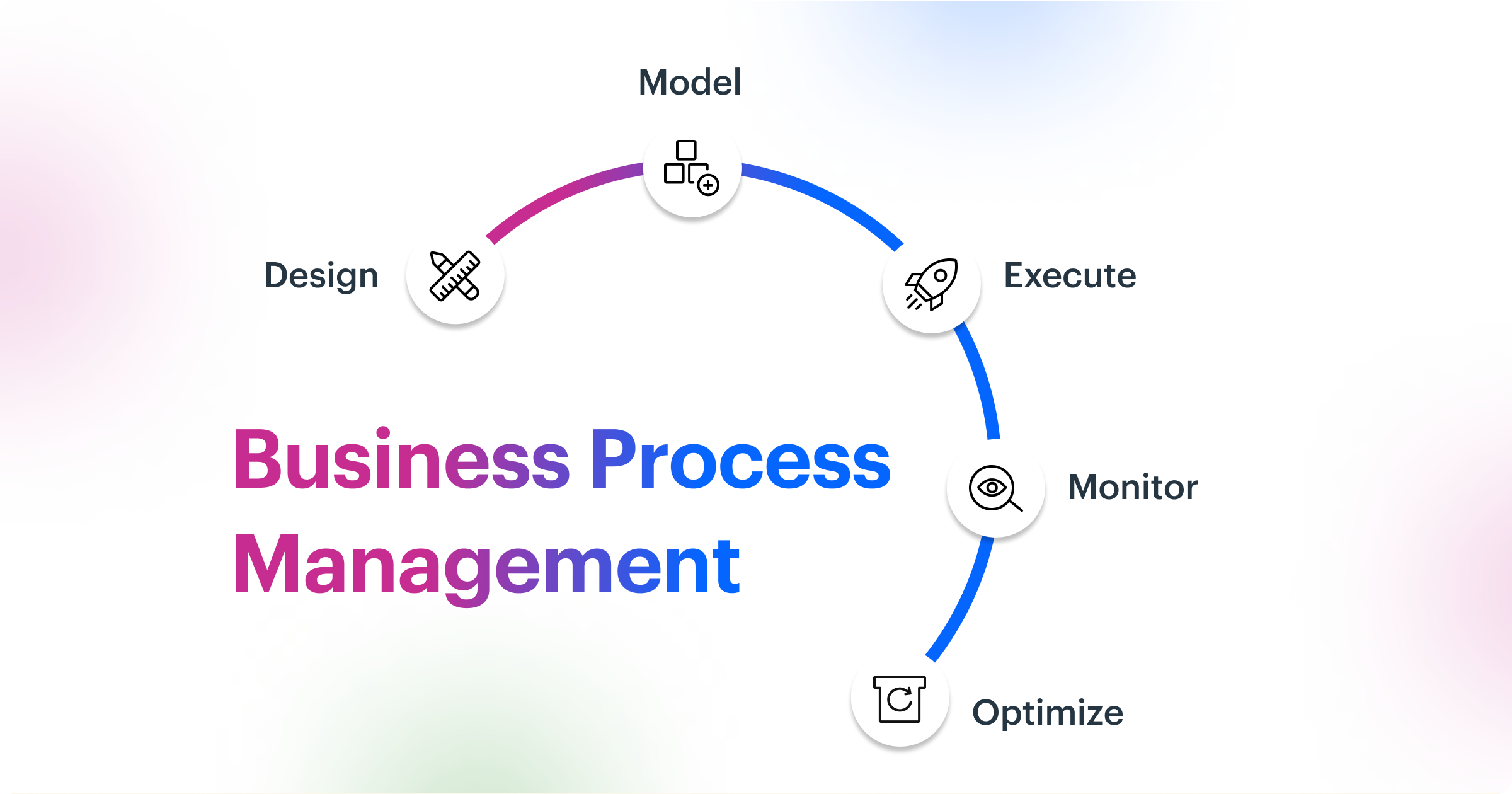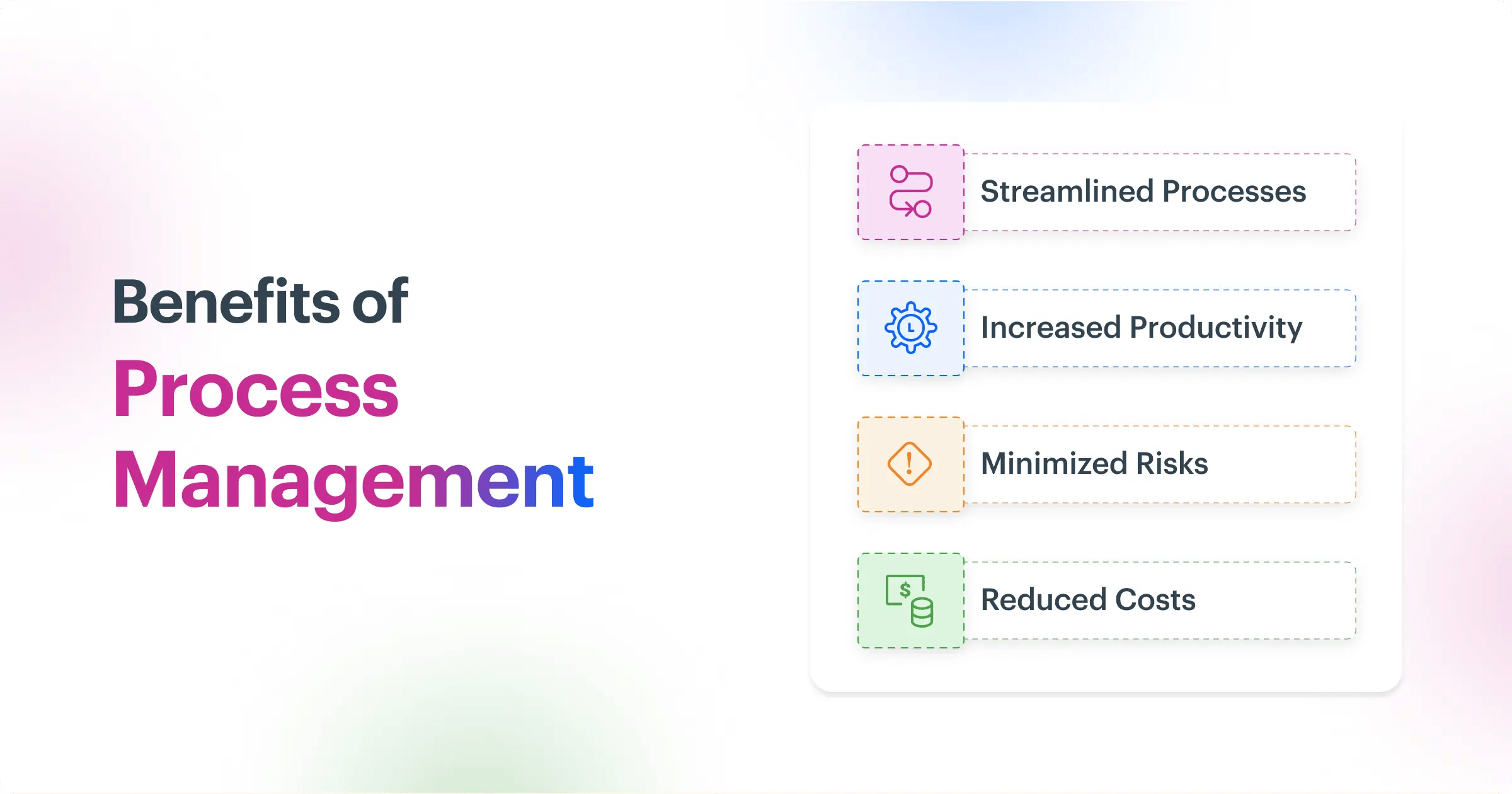You are Here: BPM Platform >> Process Management 101:
All business organizations involve processes. It can be as simple as buying ingredients, baking bread, selling bread, and receiving payment for a bakery. It can also be more complex, like a multistep purchasing process for vendor management. In either case, without an efficient system, unorganized processes can lead to problems that can adversely affect a business.
Thus, it is important to implement process management regardless of the size of the company. To understand its importance, here’s a quick run-through of how process management benefits business organizations.
What is Process Management?
Process management is a systematic approach to ensure that effective and efficient business processes are in place. It is a methodology used to align business processes with strategic goals.
In contrast to project management, which is focused on a single project, process management addresses repetitive processes carried out on a regular basis. It looks at every business process, individually and as a whole, to create a more efficient organization. It analyzes current systems, spots bottlenecks, and identifies areas of improvement.

Process management is a long-term strategy that constantly monitors business processes so they maintain optimal efficiency. Implemented properly, it significantly helps boost business growth.
The Importance of Process Management System
When managing any organization, it is imperative to understand why process management is important. More than creating seamless workflows, it enables all aspects of business operations to run at an optimal pace.
With business processes systematically implemented, you reduce time wasted on repetitive tasks and minimize errors due to human inefficiency. It also prevents the loss of data and missed steps within a process. Moreover, it ensures that resources are used properly so your business becomes more cost-efficient.
Aside from improving business operations, process management also aligns your processes with the needs of your customers. This increases customer satisfaction and leads to higher revenues.
5 Real Time Examples of Process Management
Process management encompasses all aspects of the business. Some business organizations use process management software to automate their systems, while others still use traditional methods of flowcharts and manuals. If you have been running your own company, you are most likely using some form of business process management (BPM).
Here are some real-world business process examples of how BPM is used in various industries.
1. Onboarding New Employees | Human Resource Department
Without a proper system, the onboarding process can be chaotic and time-consuming. With BPM, forms and documents can be filled up and submitted electronically. Software is used to automatically filter data, find the best matches for a position, send messages, schedule interviews, and facilitate employee onboarding.
2. Managing Logistics | Shipping Company
Logistics for a shipping company entails a long chain of complex processes while dealing with potentially thousands of people in various locations. BPM standardizes and optimizes routines involved to streamline the entire process and deliver quality service. It integrates production, finance, quality control, HR, customer service, and other departments. It centralizes data to facilitate easy retrieval of information in every phase of the business operations.
3. Loan Processing | Banking Firms
With BPM, processing loans can be done in a much shorter time. It creates an efficient flow from document submission to credit and risk checks to loan approval. It also enables tracking of applications through the entire loan processing system.
4. Compliance Management| Insurance Companies
BPM improves the overall regulatory compliance of insurance companies. It reduces human error and prevents data loss through proper documentation management. It also ensures that the company is able to comply with the latest state and federal regulations.
5. Customer Service | Retail Business
BPM enables customer-centric operations. It unifies all systems and departments for a smooth workflow that ensures all customer needs are met. It also identifies bottlenecks in the buyer’s journey so the entire purchasing process can be improved.
Benefits of Process Management

1. Streamlined Processes
BPM restructures tangled operations into smooth workflows, simplifying operations and improving business agility.
2. Increased Productivity
BPM makes sure that resources and capital are utilized properly. It also improves business processes and working conditions to increase overall productivity.
3. Minimized Risks
By clearly defining responsibilities, BPM demands higher accountability. This minimizes risks due to human error and reduces inefficiencies.
4. Reduced Costs
BPM helps spot inefficiencies so they can be corrected. It also tracks the usage of resources. With fewer inefficiencies and proper utilization of resources, BPM can reduce costs and expenditures.
How Kissflow Process Can Improve Your Business Process
Gain all the benefits of a BPM by implementing an effective process management system using Kissflow. It has all the features a good business process management system should have.
Kissflow Process automates your most complex business process. It is equipped with powerful administrator features, customization tools, integration capabilities, and performance metrics. Most importantly, it is designed with users in mind so you don’t have to deal with confusing parameters. This means you can manage your business processes easily, efficiently, and effectively.
You may also like:
- What is Business Process Management?
- What is BPMS?
- Business Process Management Software
- 10 Steps to a Successful Business Process Documentation With Example
- The Keys to Achieve Operational Excellence Through Process Optimization
- BPM Systems – The Best one MUST (will) have these 10 features
- Benefits of Business Process Management
- Business Process Management (BPM) Lifecyle.